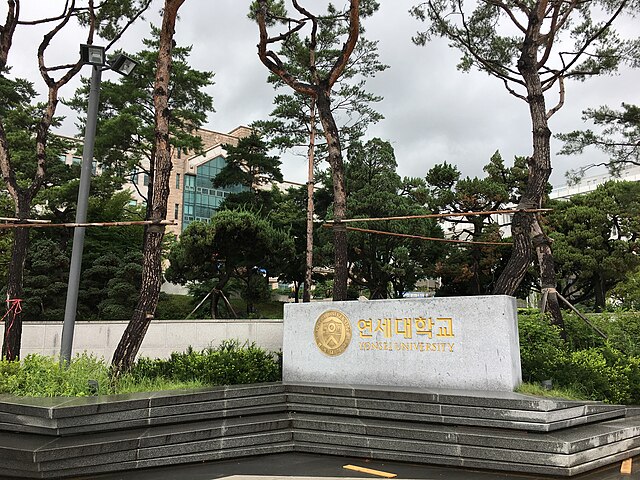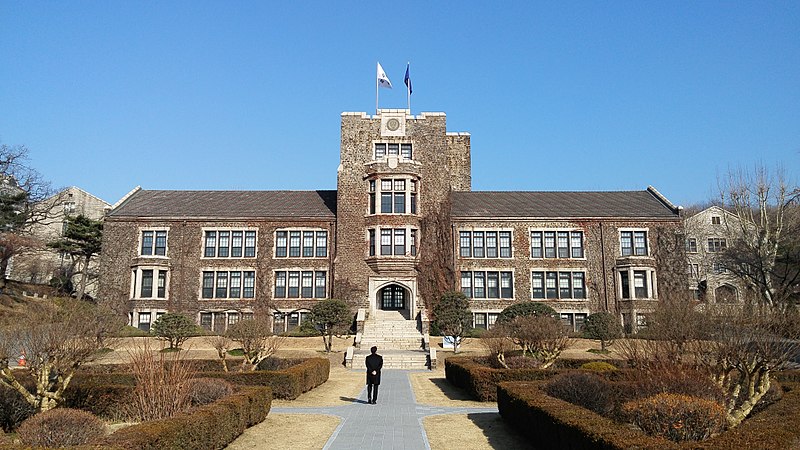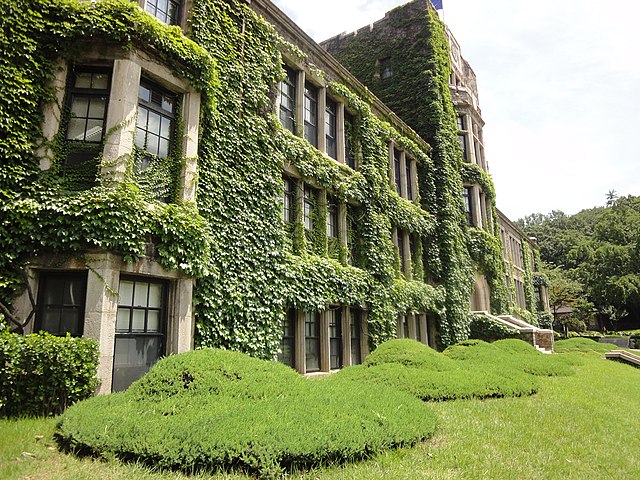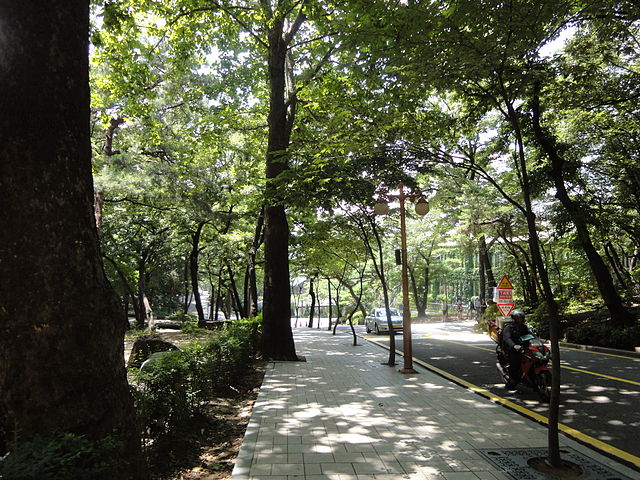
As Thammasat University students grow accustomed to online learning and distance education, some may wish to explore overseas opportunities after they have done their required coursework. Taking an extra class may be informative and help complement main areas of study, giving students new ideas and perspectives and help them to practice their English language usage.
One opportunity to consider may be free massive open online courses (MOOCs) at Yonsei University, South Korea.
Yonsei University is a private research university in Seoul, South Korea. The university was established in 1957 through the union of Yonhi College and Severance Union Medical College. In recognition of this origin, the name Yonsei was derived from the first syllables of the names of the two institutions, Yon from Yonhi College and Sei from Severance Union Medical College.
Among the many distinguished former students at Yonsei University are some authors whose books are represented in the Thammasat University Library collection. For example, Thomas Kaehao Seung is a Korean American philosopher and literary critic. His academic interests cut across diverse philosophical and literary subjects, including ethics, political philosophy, philosophy of law, cultural hermeneutics, and ancient Chinese philosophy. He is a professor emeritus of The University of Texas at Austin College of Liberal Arts.
The TU Library owns two books by T. K. Seung: Intuition and construction: the foundation of normative theory, which is shelved in the General Stacks of the Pridi Banomyong Library and Kant: a guide for the perplexed, copies of which are shelved in the General Stacks of the Pridi Banomyong Library and also of the Puey Ungphakorn Library, Rangsit campus.
Among the many interesting course options for TU students is Emerging Technologies: From Smartphones to IoT to Big Data Specialization:
Launch Your Career in Advanced Emerging Technology. Master advanced technologies and market trends to lead future R&D and business.
About this Specialization
This Specialization is intended for researchers and business experts seeking state-of-the-art knowledge in advanced science and technology. The 4 courses cover details on Big Data (Hadoop, Spark, Storm), Smartphones, Smart Watches, Android, iOS, CPU/GPU/SoC, Mobile Communications (1G to 5G), Sensors, IoT, Wi-Fi, Bluetooth, LP-WAN, Cloud Computing, AR (Augmented Reality), Skype, YouTube, H.264/MPEG-4 AVC, MPEG-DASH, CDN, and Video Streaming Services. The Specialization includes projects on Big Data using IBM SPSS Statistics, AR applications, Cloud Computing using AWS (Amazon Web Service) EC2 (Elastic Compute Cloud), and Smartphone applications to analyze mobile communication, Wi-Fi, and Bluetooth networks. The course contents are for expert level research, design, development, industrial strategic planning, business, administration, and management.
Applied Learning Project
This Specialization includes various advanced projects. The Big Data project uses IBM SPSS Statistics, the AR (Augmented Reality) smartphone project analyzes limits of AR applications, the Cloud Computing project uses AWS (Amazon Web Service) EC2 (Elastic Compute Cloud), and the Smartphone project analyzes mobile communication, Wi-Fi, and Bluetooth wireless IoT networks.
The course instructor will be Professor Jong-Moon Chung of the School of Electrical & Electronic Engineering, Yonsei University. As his faculty webpage notes, Professor Chung
is currently the Associate Dean of the College of Engineering, Professor in the School of Electrical & Electronic Engineering, Adjunct Professor of the Dept. of Emergency Medicine in the College of Medicine, and Chairman of the Department of Defense Fusion Engineering all at Yonsei University, which is located in Seoul, Republic of Korea. In addition, he is currently the Vice President of the IEEE Consumer Electronics Society. For the Republic of Korea government, he is currently serving as the Vice Chairman of the Safe Korea Training Central Evaluation Board of the Ministry of Interior & Safety (MOIS), Specialist and Advisor of the Defense Acquisition Program Administration (DAPA) and Technical Advisor of the Joint Chiefs of Staff (JCS) for the Ministry of National Defense (MND). Dr. Chung received his B.S. and M.S. degrees in electronic engineering from Yonsei University in 1992 and 1994, respectively, and Ph.D. degree in electrical engineering from the Pennsylvania State University, the United States of America… Dr. Chung’s Coursera (www.coursera.org) specialization titled “Emerging Technologies: From Smartphones to IoT to Big Data” is among the most popular in the world, which includes 6 courses focusing on the topics of deep learning, big data, cloud computing, content delivery networks (CDN), 5G & 4G mobile communications, Wi-Fi, Bluetooth, augmented reality (AR), internet of things (IoT), H.264, MPEG-DASH, hardware/CPU/GPU/devices & OS/software of smartphones and smartwatches, TCP/IP and the Internet.

Another educational opportunity for TU students might be International Marketing & Cross Industry Growth Specialization:
International Marketing & Cross Industry Growth . Harness your cross-country and cross-industry innovation skills.
About this Specialization
This Specialization covers marketing concepts but, more importantly, emphasizes the need by companies and individuals to think openly across international markets and industries for new ideas or expansion. This is summarized as “Cross Country & Cross Industry” Innovation, or CCCI in short. The first two courses will establish the core foundations and then the last three courses will elaborate on major global industry clusters: course 3 on B2B, course 4 on Healthcare and Hospitality, and course 5 on Sports and Entertainment. The capstone will require learners to develop a new product using knowledge learned from at least 2 industries.
The instructors for this class will be Professor Dae Ryun Chang, Professor of Marketing, and Professor Sunmee Choi, Professor of Service Management, both of Yonsei University.
Professor Chang earned a doctorate at Harvard University, an MBA at Columbia University, and a BCom from the University of British Columbia. His research interests lie in integrated brand management, innovation in B2B marketing and corporate social responsibility. His latest book, Mastering Noon Nopi: the Art & Science of Marketing in Asia (Yonsei University Press) is available to TU students through the TU Library Interlibrary Loan (ILL) service.
Professor Choi teaches courses on service operations management, revenue management, and experience management. Before joining Yonsei University, Professor Choi was a professor at the School of Hospitality Management at Pennsylvania State University, USA, and a visiting professor at the School of Hotel Administration at Cornell University, USA.
Still another possibility is a MOOC on Sustainable Development in the 21st Century.
About this Course
The course is designed for people that want to learn about the latest development agenda the international community agreed to achieve by 2030. Structured around the five pillars of Agenda 2030 – people, prosperity, planet, peace and justice, and partnership, students will learn that these pillars are interconnected and need to be integrated in practical policy-making and operational activities for development, in both developed and developing country settings. Following an introductory module on the main concepts of Agenda 2030 and the SDGs, successive modules will provide the foundation behind the SDGs for people, prosperity and planet, peace and partnership. A final module will explore the way forward and provide channels that the young generation can participate to integrate the SDGs in the policy-making of the students’ resident countries.
The course instructor will be Professor Ban Ki-moon. As TU students know, Ban Ki-moon served as Secretary-General of the United Nations from 2007 to 2016. Before becoming the Secretary-General, Professor Ban was a diplomat in South Korea’s Ministry of Foreign Affairs and at the United Nations. The TU Library owns two books with texts by and about Ban Ki-moon.
(All images courtesy of Wikimedia Commons)


